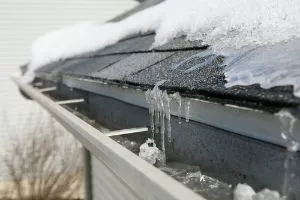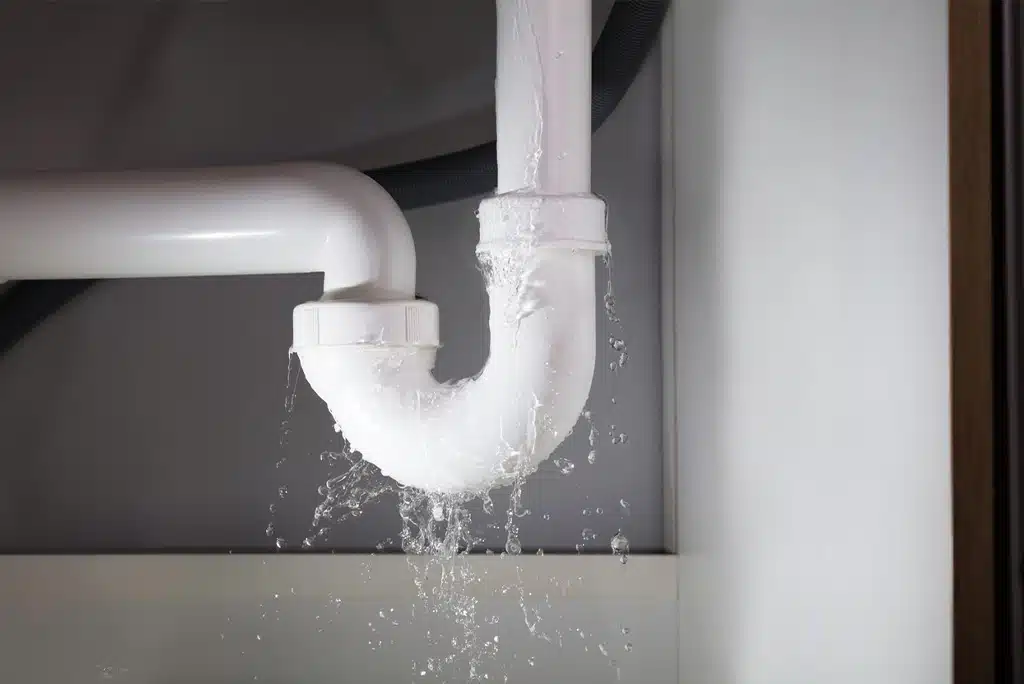Tips to Protect Your North Carolina Home From the Effects of Winter Weather

One of the amazing things about weather is that it just happens. There’s nothing to do except enjoy it most of the time and, before severe weather hits, get prepared! Depending on the year, we may or may not get much snow here in the Raleigh-Durham area. That very fact can make life more difficult when we do get snow. Because we’re not used to it, we may not be quite ready. Here’s a list of advance preparation tips to winterize your home, as well as ways to deal with the aftermath of a snowstorm. These winter home protection tips can help keep your family and home safe and comfortable in case of a snowstorm.
Snow Buildup and Ice Dams
Ice dams occur when snow melts on the upper roof and then re-freezes on the colder roof edge or overhang. Later-melting snow can’t drain and flow off the roof edge to the gutter and ground because of the ice at the roof edge. Instead, water from melting snow pools and soaks into the attic and down interior walls. Outdoors, the water behind an ice dam can damage roof shingles, eaves, rain gutters and cause dangerous icicles on the eaves. Melting ice and moisture can damage, rot or warp wood inside too. But you can prepare and manage the situation before it gets out of hand.
- To help prevent ice dams on the roof, ventilate and insulate the attic, making sure the floor and hatch are insulated from the rest of the home. This helps keep the attic area roughly the same temperature as the roof. If the attic and part of the roof get too warm, ice dams may occur.
- During a storm, snow will collect on the downwind side of a high roof, which can be a problem as weight builds up. Consult a professional roofer and/or and ice dam removal expert for assistance in clearing snow and ice.
- Prevent exterior buildup by clearing away snow regularly from exterior stairways, windowsills and wells and any mounds that are piled against the sides of your house.
- Keep rain gutters clear of debris.
- If you’ve been away on vacation and snow has built up, make sure the house is safe to enter. Turn off the circuit breaker and don’t use electricity until you’re certain it’s safe.
Winter Home Protection Tips for Plumbing Pipes
Pipes can freeze and burst due to pressure between the frozen blockage and a tightly shut faucet. Pipes in attics, crawl spaces and outside walls are particularly vulnerable to extreme cold. To keep water in your pipes from freezing:
- Shut off water valves on faucets outdoors, drain water from pipes and disconnect garden hoses.
- Don’t turn off the water entirely. Keep just a trickle flowing through faucets, particularly if pipes are running through unheated areas.
- Use insulation sleeves on exposed plumbing pipes.
- Heat tape or cables with an attached thermostat may instead be used to wrap pipes. Be sure to use UL approved cables, follow manufacturer’s directions and heed indoor/outdoor labels carefully.
- Air seal plumbing penetrations and holes in outside walls and the home’s foundations with caulk.
- Prop cabinet doors open so that warm indoor air helps to keep pipes warm
- Set the thermostat to a constant temperature during the coldest days and nights to keep pipes warm.
Water Intrusion From Ice Dams or Busted Pipes
- Cut the electrical supply at the circuit breaker. Also turn off and your home’s electrical gas supply if gas pipes appear to have been damaged.
- Seal any large, obvious water entry points like broken windows, roof leaks or holes right away. If there’s little wind or snow at the moment, you can tack plastic sheeting to walls or roofs to cover holes or leaking areas and keep water out temporarily while you clean up.
- Disconnect electrical equipment in the house and move it to a dry area.
- Bail out, wet-dry vacuum or sweep out standing water.
- Remove soaked and water-damaged furniture and construction materials right away, to avoid mold growth, wood rot or structural damage to your house.
- Use fans or dehumidifiers to ventilate wet areas of the house if you can.
- Contact a water extraction or mold remediation company, if necessary.
For additional winter home protection tips, attic ventilation or home heating solutions, contact Air Experts. We’ve served the complete HVAC needs of the Raleigh, North Carolina, community for the past 28 years.
Image Provided by Shutterstock.com







